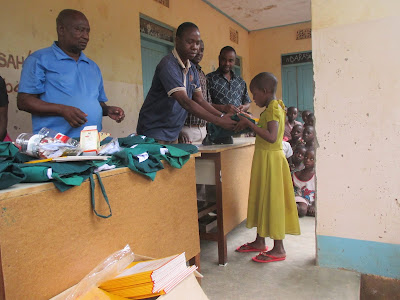Last Monday meeting was held at the office in Sahwa nursery school. Walking through the school yard, planning improvements like reading spots for the library and a small vegetable garden. The doors to the toilets will be fixed by NIHEP to improve the feeling of safety for the girls in particular.
Children were reaching out for NIHEP staff Getu and Amalath to show their newly received exam results throughout the day.
One grandmother visited to talk to Kajuna and Gethu. She takes care of her orphaned 10 year old grandson and she was showing concern about the boy as he is not attending school but rather roaming in the streets with his school bag. Later Kajuna talked to the boy, not lecturing, but trying to get his thoughts and telling why going to schhol can be an advantage.
After this day, once again, I am so happy for the work NIHEP is doing as I also note the importance of the attention they give both to the children and the caregivers.
In the picture Amalath with one of the supported girls in Sahwa Primary.

In the pictures planning of the school yard and beneath Amalath and Gethu doing follow up one of the boys supported.
/Lena Johansson, Mwembe















